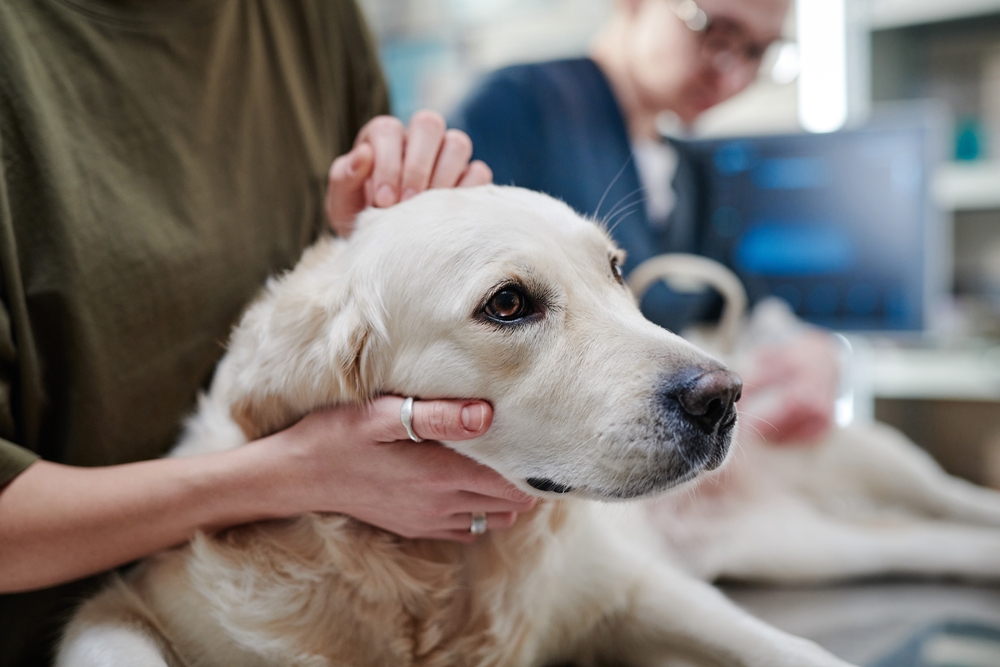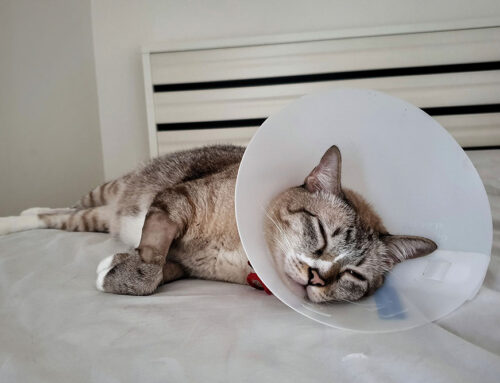Did you know that cancer is one of the most common health challenges faced by pets? Like humans, pets can develop cancer, but early detection can significantly improve their outcomes. At Oliver Animal Hospital in South Austin, we are dedicated to helping you recognize the signs of cancer early and providing advanced care. As your trusted South Austin vet, we’re here to guide you through every step of this journey.
Understanding Cancer in Pets
Cancer in pets occurs when cells grow uncontrollably, potentially forming tumors or spreading throughout the body. Just like in humans, it can affect various organs and systems. Common types of cancer in pets include:
- Lymphoma: A cancer of the lymphatic system, common in both cats and dogs.
- Mast Cell Tumors: A prevalent form of skin cancer, particularly in dogs.
- Osteosarcoma: Bone cancer, often seen in large dog breeds.
- Mammary Tumors: Frequently found in unspayed female dogs and cats.
- Squamous Cell Carcinoma: A type of skin cancer often linked to sun exposure, especially in light-colored pets.
Understanding the types of cancer pets face can empower you to take swift action if symptoms arise.
Causes and Risk Factors of Pet Cancer
While the exact causes of cancer aren’t always clear, certain factors increase the risk:
- Genetics: Some breeds are predisposed to specific cancers. For example:
- Golden Retrievers and Boxers: High risk of lymphoma and mast cell tumors.
- German Shepherds: Prone to hemangiosarcoma.
- Large Breeds (Great Danes, Rottweilers): Higher likelihood of osteosarcoma.
- Siamese Cats: Increased risk of mammary cancer and lymphoma.
- Environmental Factors: Prolonged exposure to secondhand smoke, pesticides, and certain chemicals may increase cancer risks.
- Age: Older pets are more likely to develop cancer as their cells are more prone to mutation over time.
- Hormonal Status: Unspayed or unneutered pets are at higher risk for reproductive cancers.
Proactive tip: Spaying or neutering your pet at the appropriate age can reduce the risk of several types of cancer, such as mammary and testicular cancers.
Recognizing Early Signs of Cancer in Pets
Early detection can save your pet’s life. Be vigilant and watch for these warning signs:
- Lumps or Bumps: Any new growths, especially those that persist, grow, or change in shape, should be examined by a veterinarian.
- Weight Loss or Appetite Changes: Unexplained weight loss or loss of appetite can indicate an underlying issue.
- Persistent Sores: Wounds that don’t heal may suggest skin cancer or an immune system problem.
- Difficulty Swallowing or Eating: This can point to oral tumors or gastrointestinal issues.
- Unexplained Bleeding: Bleeding from the nose, mouth, or other areas is a potential red flag.
- Abnormal Odors: Foul smells, particularly from the mouth, ears, or anus, can indicate cancer.
Key takeaway: If you notice any of these signs, don’t wait. Early intervention often leads to better outcomes. Schedule an exam with your veterinarian as soon as possible.
Why Regular Veterinary Care Matters
Routine check-ups are essential for early cancer detection. At Oliver Animal Hospital, we offer comprehensive wellness exams and advanced diagnostics to detect and diagnose cancer early. Our team uses tools like:
- Fine Needle Aspirations (FNA): A minimally invasive way to sample suspicious lumps.
- Biopsies: Provide definitive diagnoses by analyzing tissue samples.
- Imaging: X-rays and ultrasounds help detect internal tumors or metastasis.
Regular veterinary visits also allow us to track changes in your pet’s health and recommend screenings for at-risk breeds.
Treatment and Recovery
Cancer treatment for pets depends on the type and stage of the disease. At Oliver Animal Hospital, we tailor each plan to your pet’s needs, ensuring their comfort and quality of life remain a top priority. Treatment options may include:
- Surgery: Removal of localized tumors.
- Chemotherapy: Effective for systemic cancers like lymphoma.
- Radiation Therapy: Targets specific tumors with precision.
- Palliative Care: Focuses on managing pain and maintaining quality of life for advanced cases.
Recovery times and outcomes vary, but early detection and a proactive approach significantly improve the chances of success.
Preventing Cancer in Pets
While not all cancers are preventable, you can take steps to reduce your pet’s risk:
- Balanced Diet: Provide high-quality, nutrient-rich food to support their immune system.
- Regular Exercise: Helps maintain a healthy weight and overall wellness.
- Limit Sun Exposure: Protect light-colored pets from UV rays by keeping them indoors during peak sunlight or using pet-safe sunscreen.
- Avoid Toxins: Keep your pet away from secondhand smoke, pesticides, and hazardous chemicals.
- Routine Screenings: Annual exams (or semi-annual for senior pets) allow for early detection and intervention.
How Oliver Animal Hospital Can Help

At Oliver Animal Hospital, we understand the emotional and medical challenges of dealing with pet cancer. Our team is here to provide:
- Comprehensive Diagnostics: Ensuring accurate and timely identification of cancer.
- Personalized Treatment Plans: Tailored to your pet’s needs and comfort.
- Supportive Care: We work closely with specialists and provide referrals for advanced treatments like radiation therapy.
Explore our Emergency Services or learn more about our Specialist Referrals to see how we can support your pet.
FAQs on Pet Cancer: Addressing Your Concerns
- What should I do if I find a lump on my pet?
Not all lumps are cancerous, but they should be checked by a vet. A simple fine needle aspiration or biopsy can determine whether the lump is benign or malignant. - How often should my pet be screened for cancer?
Annual exams are recommended for younger pets. For senior pets or at-risk breeds, we suggest semi-annual visits and regular cancer screenings. - Can lifestyle changes help prevent cancer?
Yes! Feeding a balanced diet, maintaining a healthy weight, and avoiding exposure to harmful chemicals can reduce cancer risks. Routine check-ups are also essential for early detection.
Recognizing the early signs of cancer in pets can make a profound difference in their health and quality of life. At Oliver Animal Hospital, we are committed to providing compassionate, expert care to help your pet live their best life. If you have concerns about your pet’s health, request an appointment today with your trusted South Austin vet. Together, we’ll ensure your furry friend receives the care and attention they deserve.







Leave A Comment